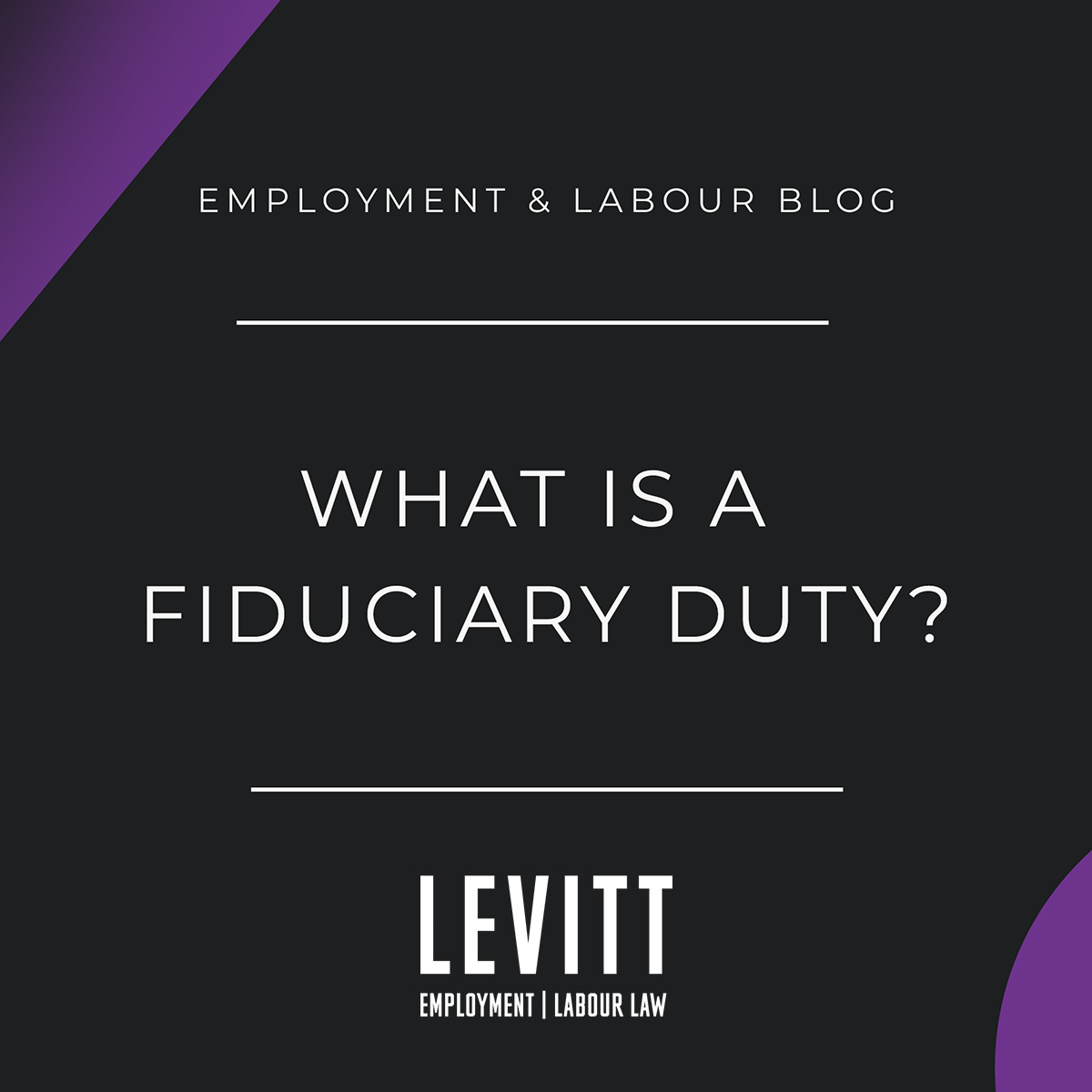What is a Fiduciary Duty?
A fiduciary duty is when an employee owes their employer a special duty above and beyond that of a regular employee. It is the duty of a fiduciary to act in the best interests of their employer, performing all duties with honestly and in good faith.
How Do I Know if I Owe a Fiduciary Duty?
Not all employees owe a fiduciary duty to their employer. A fiduciary employee is an employee in a position that contains the power and the ability to direct and guide the affairs of the company and be in a position to exert or exercise some independent power or discretion over the employer’s business. This elevated control and responsibility creates corresponding duties owed by the fiduciary to the employer.
Higher-up employees that make business decisions or employees that could leave employers vulnerable to competition after departing are often more likely to be considered fiduciary employees. Some examples include directors and other upper management. However, lower-level managers and even regular employees can also have this duty depending on the nature of their duties.
In sum, there are three hallmarks of a fiduciary duty:
- The fiduciary has scope for the exercise of some discretion or power;
- The fiduciary can unilaterally exercise that power or discretion so as to affect the beneficiary’s legal or practical interests; and
- The beneficiary is peculiarly vulnerable to or at the mercy of the fiduciary holding the discretion or power.
See Lac Minerals Ltd v International Corona Resources, [1989] 2 SCR 574 and PointOne Graphics Inc. v. Roszkowski et. al., 2021 ONSC 629.
What Are My Obligations as a Fiduciary?
- Obligations While Employed
During their employment, fiduciary employees cannot enter into engagements in which they have a personal interest that conflict with anything the employer does, or will predictably do, without first telling the employer and obtaining their consent.
Fiduciary employees are also prohibited from obtaining any business advantage or opportunity belonging to the employer for themselves without the approval of the employer.
- Obligations After Departing
Once found to be a fiduciary employee, a fiduciary employee cannot solicit the employer’s customers for a reasonable period of time after the end of their employment. If one is not a fiduciary employee, they are free to solicit like any other employee: Cantol v. State Chemical 2019 ONSC 531.
What Happens if I Breach My Fiduciary Duty?
A fiduciary employee who breaches their duty can potentially be terminated ‘for cause’. Being terminated ‘for cause’ means the employee would not be entitled to notice of termination or termination pay in lieu of notice. Moreover, fiduciaries who have profited from any breach of their duties can be sued for disgorgement of profits by their employer.
If you have been accused of breaching your fiduciary duty or you have already been terminated for this reason, it is important to contact legal counsel without delay.
Please note that this article is only to be used as general information and it does not constitute legal advice. We encourage employers and employees to contact Levitt LLP directly to better understand vaccination-related issues and seek legal advice to their questions.

